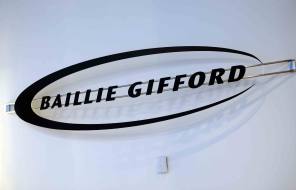

The phrase: “Top quartile performance, bottom quartile fees”, is one that sits nicely with me - and all other investors, I should imagine.
It was the opening line in a meeting I had with Torcail Stewart and Lesley Dunn, two of the co-managers on the Baillie Gifford Strategic Bond fund, a few weeks ago.
Recently renamed from Baillie Gifford Corporate Bond, this is a fund I have backed for some time.
The managers believe that trying to second-guess central bankers is a bit of a fool's errand and instead stick to what they do best, which is picking individual bonds. While this may seem simplistic, the in-depth research they carry out to find ideas is anything but.
Corporate bonds offer two sources of potential outperformance relative to the index: yield return and capital appreciation.
Their aim is to identify bonds where the yield will fall and price appreciation greater than the market will be produced.
Within each of these categories, they identify two sub-sets. For the yield category, these are ‘steady’ and ‘compounding’, while in the price appreciation category, they are ‘accelerated’ and ‘event driven’.
The managers believe that inefficiencies exist at the stock level, particularly in the under-appreciated companies operating in the BBB/BB area of the rating spectrum.
Consequently, a significant portion of this fund will be clustered around the investment grade/high-yield border.
They also focus on mis-rated bonds, unrated bonds – of which they believe there are plenty of neglected opportunities – out of favour sectors or management turnaround scenarios, and potential M&A targets.
And despite all the market concerns over interest rates, they have the conviction to go for a longer-dated bond if they like the stock. They will then stick with it, happy to hold an issue for three to five years, so turnover is low.
If the team like a bond, they size it relative to the opportunity. This generally means a decent sized holding and the only positions that represent less than 0.75 per cent of the portfolio are those being built up over time or on their way out of the fund.
The high conviction approach means the fund can be more volatile than some of its peers; however, the strategy also benefits from the diversification that investing on a global scale across a broad range of sectors can provide.
The sector weightings in particular demonstrate the diversification of the fund.
The highest weighting is 16.6 per cent in insurance companies but a further 10 sectors also all represent at least 3.5 per cent.
The underlying holdings reiterate the point. From the University of Cambridge to Bank of America, Mexico's 100-year bond (with 20-year duration), to Sally Beauty and Netflix, all sorts of bonds are covered.
The fund is currently underweight southern Europe.
Italy has more bargaining power than Greece ever did, so its problems are a concern. So where the managers have invested on the continent, it has been in sterling bonds to avoid nasty currency surprises.
The fund has also been underweight emerging market bonds since the start of the year – a shrewd move in hindsight, as the asset class has been one of the losers so far in 2018.
After a 35-year bull market, however, bonds are a bit of a hard sell at the moment.
But as Mr Torcail said: “Don't get fixated on interest rates and inflation. It is still possible to identify businesses that can perform in any environment.”
The fund's ongoing charge (OCF) of 0.52 per cent puts it firmly in the bottom quartile for fees, a good 19 basis points lower than the sector median of 0.72 per cent.
Over one, three, five and 10 years, the fund is first quartile in its peer group, according to fund presentations from the second quarter of 2018.
If you want proof of their stockpicking skills, there it is.
Darius McDermott is managing director of FundCalibre



